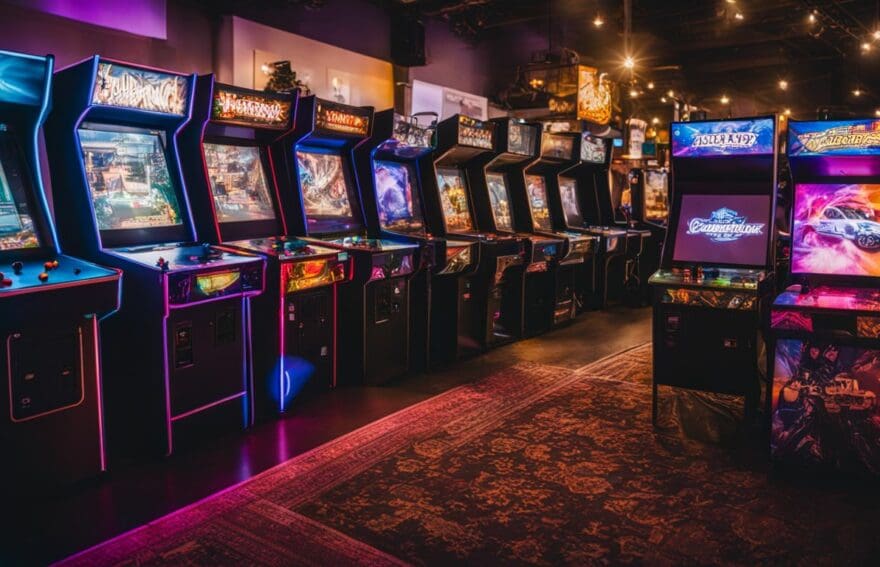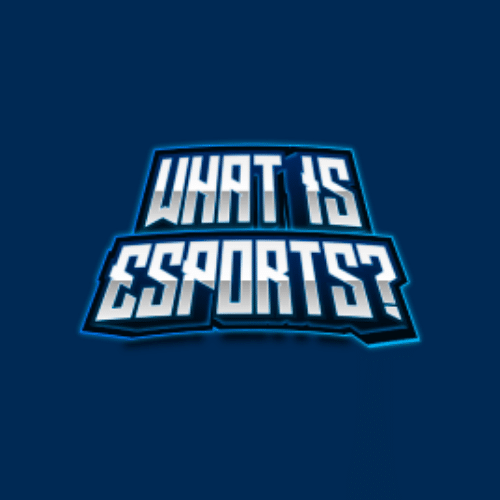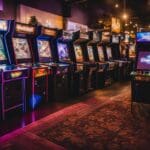Anatomy of the FGC: Understanding Players, Fans and Culture

Updated On: November 29, 2025 by 
Venturing into the realm of competitive gaming can seem quite overwhelming, particularly when faced with the complex tapestry of fighting game communities. We all know the feeling, struggling to make sense of the nuanced interactions and deep-rooted culture that epitomises the FGC; it’s a journey many have shared.
Events like EVO have evolved from humble gatherings in local hotel ballrooms to colossal international spectacles that attract thousands. Our guide gently unfolds the multiple layers of this effervescent scene, shedding light on its stalwart players, fervent supporters, and distinctive cultural quirks.
Prepare to unravel the mysteries of the FGC with us!
The Evolution of Fighting Games
From the days of arcade cabinets to the era of home consoles, fighting games have come a long way in terms of accessibility and competitiveness. As they gained popularity, the competitive scene grew, leading to more high-stakes tournaments and events.
From arcades to consoles
Arcades once stood as the battlegrounds of fighting games, with their flashing screens and clack of buttons setting the rhythm of combat sports. We felt the thrill of face-to-face challenges, where victories were just as much about skill as they were about showmanship.
Those arcade cabinets taught us frame data and strategy before we even knew those words. Now, consoles have brought that experience into our homes. They’ve not only widened access to these adrenaline-pumping contests but also refined gameplay mechanics for both newcomers and seasoned gamers.
We embrace this evolution from public arenas to personal gaming stations because it keeps our FGC vibrant and accessible. Console play has transformed how we prepare for tournaments, allowing us to practice without the need for a pocket full of coins.
It’s connected players across town or even continents through online play, fostering an international community united by a love for competitive esports. This shift hasn’t diluted our culture; if anything, it’s enhanced it – ensuring that whether you’re trading blows in person or over a network, the spirit of competition always remains at the heart of every match.
Rise in popularity and competitiveness
Fighting games have seen a significant surge in popularity and competitiveness over the years, with a growing player base and an expanding audience of enthusiastic fans. The rise of esports has further propelled the competitive gaming scene into the mainstream, drawing attention to fighting game tournaments and events globally.
This upsurge in popularity has led to increased recognition for top professional players within the FGC, showcasing their talents on both national and international stages.
Competitiveness within the FGC has evolved into a dynamic landscape where dedicated players strive for excellence while fostering an inclusive environment for all skill levels. Tournaments serve as platforms for showcasing talent and expertise, attracting both seasoned professionals and aspiring newcomers who are passionate about honing their skills.
Understanding the FGC Community
The Fighting Game Community (FGC) is a diverse and inclusive community made up of passionate gamers from all walks of life. With a strong emphasis on skill, sportsmanship, and camaraderie, the FGC is a welcoming space for anyone who shares a love for fighting games.
Diversity and inclusivity
Diversity and inclusivity within the Fighting Game Community (FGC) celebrate the vast array of players from different backgrounds. The FGC embraces individuals regardless of gender, race, or ethnicity, creating a welcoming environment for everyone to participate and share their love for fighting games.
This inclusive approach has resulted in a rich tapestry of voices and perspectives that enrich the community experience.
In the FGC, diversity serves as a driving force behind creativity and innovation. Embracing inclusivity encourages fresh ideas and unique gameplay styles, ultimately contributing to an elevated gaming experience for all involved.
Passion and dedication
Moving from the diverse and inclusive nature of the FGC community, let’s delve into the passion and dedication that fuel this vibrant culture. The players in the fighting game community exhibit unwavering commitment to their craft, constantly honing their skills and knowledge to reach higher levels of play.
Whether it’s spending hours perfecting combos, studying match-ups, or participating in local tournaments, these individuals showcase a deep-seated love for the game.
Top professional players act as inspirational figures who demonstrate extraordinary talent and unwavering determination. Their influence extends beyond competitive success, often shaping the broader culture of the FGC.
Key Players in the FGC
Top professional players push the boundaries of skill and strategy, inspiring others to improve and innovate. Influential figures in the FGC community contribute to its growth and development, while tournaments and events provide a platform for showcasing talent and competition.
Top professional players
Top professional players in the Fighting Game Community (FGC) are renowned for their exceptional skills and strategic gameplay. These players have dedicated countless hours to honing their craft, mastering various fighting games and competing in high-stakes tournaments. Their influence extends beyond the competitive scene, as they often serve as role models and inspirations for aspiring players.
- Renowned for their exceptional skills and strategic gameplay, top professional players in the FGC set a high standard for excellence within the community.
- These players dedicate countless hours to honing their craft, mastering various fighting games, and consistently striving to improve their techniques.
- Their presence is felt not only in competitive tournaments but also through content creation, streaming, and offering guidance to budding enthusiasts.
- As role models within the FGC, top professional players inspire aspiring gamers and contribute to shaping the overall culture of the community.
- Through their dedication, perseverance, and drive for continuous improvement, these players exemplify the level of talent found within the dynamic world of fighting games.
Influential figures in the community
Influential figures in the FGC community are pivotal to shaping its culture and growth. They are respected for their contributions and impact within the gaming sphere. These individuals inspire, lead, and drive progress in the FGC.
- Visionary Game Developers: Pioneers like Masahiro Sakurai, creator of Super Smash Bros., and Ed Boon, co-creator of Mortal Kombat, have shaped the landscape of fighting games.
- Community Organisers: Dedicated individuals such as Alex Valle and Tom Cannon, founders of EVO Championship Series and CEO Gaming respectively, have elevated the status of competitive gaming through their events.
- Content Creators: Influencers like Aris Bakhtanians (AvoidingThePuddle) and Maximilian Dood foster engagement through their streams, videos, and tutorials that resonate with fans.
- Tournament Organisers: Leaders like Jabalie “Jebailey” Irvin and Larry “Shin Blanka” Dixon have contributed significantly to hosting inclusive tournaments catering to diverse players.
- Charitable Advocates: Noteworthy figures like Dominique “SonicFox” McLean use their platform to advocate for inclusivity while raising awareness around social issues within the FGC.
Tournaments and events
Influential figures in the community contribute to the vibrant landscape of tournaments and events within the FGC, showcasing talent from all corners of the globe. Here’s a detailed look at what makes these gatherings such an integral part of the fighting game culture:
- Tournaments act as platforms for players to demonstrate their skills and sportsmanship, driving healthy competition and camaraderie.
- Events bring together fans and players, fostering a sense of community and shared passion for fighting games.
- Top-tier competitions not only attract professional players but also provide opportunities for up-and-coming talent to make their mark on the scene.
- International tournaments create a melting pot of diverse playing styles and strategies, enriching the global FGC experience.
- Regional events celebrate local talent, reinforcing the inclusive nature of the community while nurturing grassroots growth.
- The excitement and thrill of witnessing high – stakes matchups at major tournaments add to the appeal for both players and fans alike.
- Gaming conventions often host special FGC events, serving as hubs for networking, skill – sharing, and celebrating all aspects of fighting game culture.
- Community – run tournaments offer a more intimate setting for players to connect with fellow enthusiasts and build lasting relationships within the FGC.
- Collaborative events between different gaming communities promote cross – pollination of ideas, further enriching the cultural tapestry of fighting games.
- Charity tournaments demonstrate the altruistic side of the FGC, using gaming as a force for positive change through fundraising efforts and community support initiatives.
The Role of Fans in the FGC
Fans play a crucial role in the FGC, actively supporting and engaging with their favorite players and tournaments. Online communities and forums provide a platform for fans to connect, discuss strategies, and share their passion for fighting games.
Active involvement and support
Fans engage with the FGC through various means, including attending events, participating in online forums and communities, and supporting their favorite players. Online platforms like SRK provide a space for fans to discuss game strategies, share tips, and stay updated on the latest news within the community.
This active involvement not only strengthens fan connections but also contributes to the overall vibrancy of the FGC. Additionally, fans play a vital role in promoting a welcoming environment by embracing diversity and inclusivity within the community.
Players appreciate fans’ unwavering support at tournaments and events. The lively atmosphere created by enthusiastic supporters further fuels competitive spirit among players. Their cheers and encouragement serve as motivation for competitors to continuously improve their skills.
Online communities and forums
Passionate and novice gamers alike actively engage in online communities and forums as vibrant spaces for sharing insights, strategies, and enthusiasm for fighting games. These platforms provide a supportive network where members can seek advice, discuss gameplay techniques, and connect with like-minded individuals from across the globe.
The diverse range of topics covered on these forums reflects the inclusive nature of the FGC community, offering valuable resources to both seasoned players seeking advanced tips and newcomers looking to improve their skills.
Moreover, these online communities serve as hubs for announcements about upcoming tournaments, events and introduce fans to influential figures within the FGC. Engaging with these virtual spaces is an integral part of being deeply involved in the rich culture that surrounds fighting games.
It fosters a sense of camaraderie while enhancing knowledge about different game titles and overall contribution to the growth of gaming culture.
The Culture of the FGC
Performativity and social game play are at the heart of the FGC culture, where players engage in competitive and theatrical displays during tournaments. Creating a welcoming and inclusive environment is also a key aspect of the community, promoting diversity and respect among its members.
Performativity and social game play
Performativity in the Fighting Game Community (FGC) is a significant aspect of game play. Players engage in live performances during tournaments and events, demonstrating their skills and strategies while trying to outplay their opponents.
This creates an exciting atmosphere filled with energy and anticipation, drawing attention from fans and enthusiasts alike. Social game play within the FGC involves not only competing but also interacting with fellow players in person or through online platforms.
The community thrives on camaraderie, mutual respect, and shared passion for fighting games, fostering a welcoming environment for players of all skill levels.
Players immerse themselves in the social dynamics of the FGC by participating in local meetups, organising casual gaming sessions, or engaging in discussions about game tactics on forums such as SRK.
These interactions contribute to preserving the rich culture of arcade gaming while providing opportunities for players to learn from each other and build lasting connections within the community.
Creating a welcoming and inclusive environment
Transitioning from the intricacies of social gameplay, creating a welcoming and inclusive environment within the Fighting Game Community (FGC) is essential for fostering a supportive and diverse community.
Embracing individuals from all backgrounds and skill levels enriches the FGC culture, encouraging mutual respect and camaraderie among players. A positive atmosphere not only enhances the overall experience but also attracts new players, broadening the reach of the community.
Inclusivity in events, forums, and online communities ensures that every voice is heard, contributing to a vibrant and thriving FGC.
Embracing diversity fosters an open environment where passionate gamers of varying expertise can share their love for fighting games without fear or judgement. Recognising this diversity is crucial as it brings together fans with different perspectives to celebrate their shared passion for esports.
Conclusion
Understanding the FGC community and its diverse members is essential. Fans play a crucial role in supporting events and fostering a sense of belonging. Embracing inclusivity and building positive environments within the FGC are vital for continued growth.
Recognising top players, influential figures, and the dedication found across all levels shapes the culture of the FGC.
FAQs
1. What does FGC stand for in gaming?
FGC stands for Fighting Game Community, which includes all the people who play, watch, and love fighting games.
2. Who are the players in the FGC?
Players in the FGC are individuals who compete using their skills on various fighting games, often using controllers or arcade sticks.
3. Can you tell me about fans of the FGC?
Fans of the FGC passionately follow their favorite players and games; they enjoy watching matches and supporting this unique sports culture.
4. What is special about arcade culture within the FGC?
Arcade culture is at the heart of the FGC; it celebrates a love for classic gaming experiences where players meet to challenge each other face-to-face.


